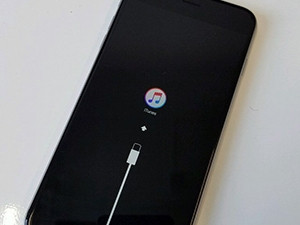
Apple's new operating system, iOS 10, was released publically last night and is already wreaking havoc with some users' iPhones.
Hundreds of users reported during the first hour of availability that after downloading the new system, their device was 'bricked', rendering it useless.
Apple responded promptly after pictures of bricked iPhones flooded Twitter. It claims to have resolved the issue, and provided affected users with a fix, which involves connecting the device to iTunes on a laptop or desktop.
However, Twitter users are complaining about a host of other issues after updating to iOS 10.
User ?@21arrows said the update was draining his battery and the iPhone was not working, especially when typing.
Bob Muyskens tweeted: "Updated my iPhone 6 to iOS 10 and now the wireless communication is borked up. WiFi and cellular speeds are extremely slow."
Casey Newton reported having "severe" iMessage crashing problems.
The issues, although widespread, do not seem to affect everyone. Kyle Hebert tweeted: "One of the lucky ones whose iOS 10 update didn't brick his phone. Really liking the enhancements."
And, as Twitter user ?@leftytwylite pointed out: "It could be worse; at least it isn't exploding," referring to Apple rival Samsung's recent recall of galaxy Note 7 devices after they were reported to randomly burst into flames.
Apple has not commented on the further issues, but a new version of the system can be expected soon to fix bugs. Last year, the company provided three updates to iOS 9 within a month of its release.
It is advisable for iPhone users to hold off on updating their software if they have not done so already.
In the update
iOS 10 was touted by the company as its biggest update yet, and was meant to change and streamline many iPhone processes.
New features include the ability to send hand-written notes and stickers in iMessage, redesigned Apple Music, Apple Maps and the Photo app, as well as a new Home app to control Internet of things devices.
Apple also now finally allows device owners to delete pre-installed stock apps, including FaceTime, Find My Friends, Home, iBooks, iCloud Drive, and many others.
The new operating system sees the first time the company has opened up its voice-activate personal assistant, Siri, to outside developers. This means users are now able to ask Siri to send a message through third-party apps like WhatsApp, or check their Google calendar.
There are also other features that have been available on Android for years, such as widgets, keyboard updates and other user experience changes.
Always an issue
This is not the first time problems have occurred with system updates.
Last year, Apple's fastest adopted operating system, iOS 9, caused different problems for various users even after the updated versions were launched.
Users complained that after updating, their devices failed to register finger press and touch locations, iMessages were not being shown as delivered, audible and vibration notifications were not being sent on several apps, as well as not being able to open e-mails.
Even new features designed to help users caused issues. iOS 9 introduced WiFi Assist (turned on by default with the new OS) that drained South Africans' mobile data plans.
It was developed to provide users with a seamless Internet connection by detecting when the device is experiencing weak or slow WiFi signal, and automatically switching to the user's data. The WiFi Assist feature only made sense in regions where many iPhone owners have an unlimited data contract.
The new iPhone 7 and 7 Plus were announced at an event in San Francisco last week.
Share